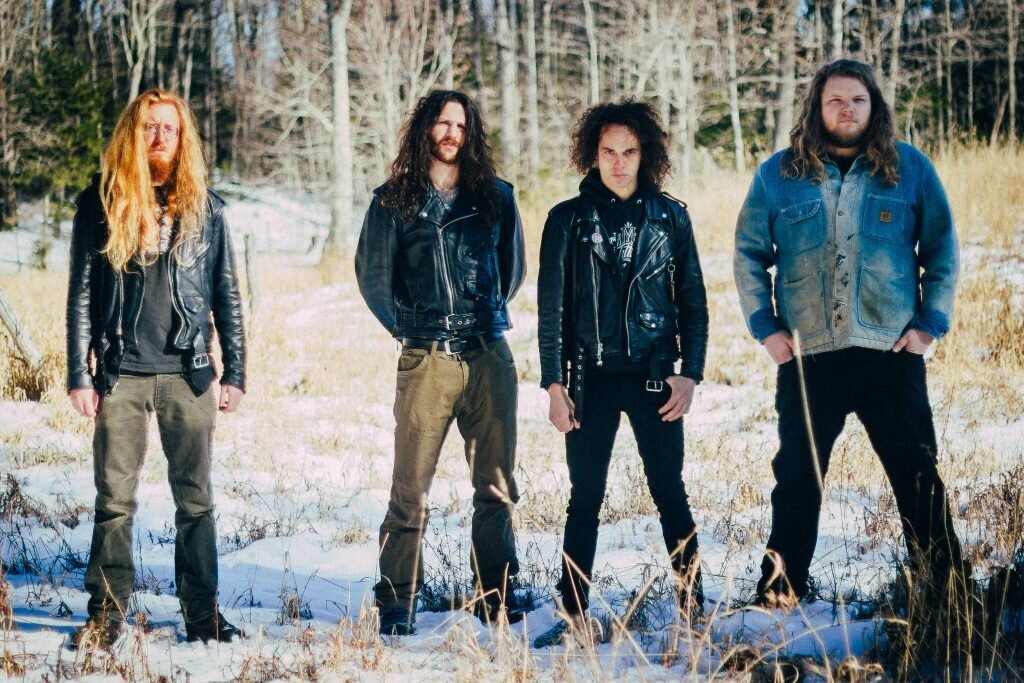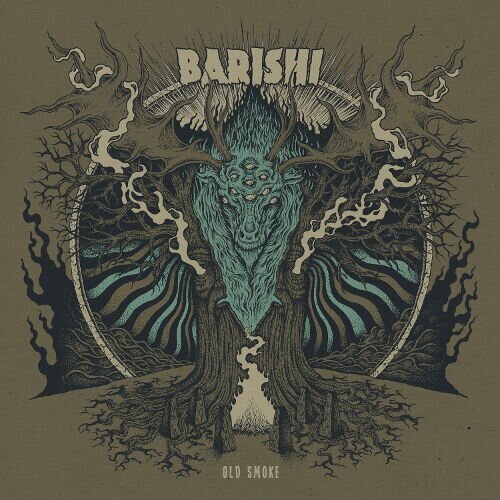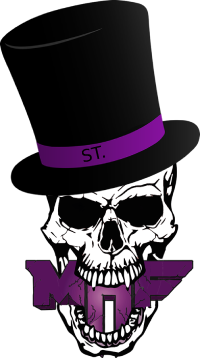Hi there, guys. What have you been up to lately?
Graham: Hi! Not a whole lot at the moment. We filmed a couple of songs for a digital festival that’s taking place soon. I’ve been trying to write some new stuff in my spare time, but we haven’t had band practice for a few months at this point, so the new songs are still in their primacy.
I know you met on the tiny village of West Dover and still today, you’re friends. How is it to live there, in terms of being a professional band and personally (liking Metal). Could you tell us how do you spend your time?
Graham: Living in Vermont is pretty cool. There is not a lot to do, so you have to be pretty good at finding things to occupy your time. There isn’t a large metalhead population to play to, but we aren’t too far away from major North Eastern U.S. cities. Lately, we’ve been spending our time trying not to get infected with and spread Covid-19 while working menial jobs. In normal circumstances, we usually are practising music or swimming somewhere.
This guy in Burlington started running this thing called Metal Mondays at a club called Nectars and was responsible for the beginning of your journey. In what ways did he help you?
Graham: Playing at Metal Monday’s introduced us to lots of dedicated and passionate musicians and people in the music industry. Not to mention, simply being around professional bands and people made us realize how shitty we were at so many things at that point. A fire was definitely lit underneath us to become more professional.
From 2010 until 2012, you were known under the name “Atlatl” and afterwards “Barishi”. Why did you decide to change it and what’s the meaning of the name? Did you only come up with this idea or did you have more?
Graham: Some DJ who called himself ‘Atlatl’ wrote to us and told us we couldn’t use the name. We figured we should just change it rather than waste time with that guy. I can’t really remember how we settled on Barishi, but the etymology has a few different explanations depending on who you ask in the band.

You don’t like technology. How do you create your sound?
Graham: I let people who are smarter than me and more adept with technology take the helm when recording. As far as writing the music and developing the sonic aesthetic, I can plug into a couple of pedals and turn on my amp, but my tech-abilities stop around there, unfortunately.
There was a lineup change. First as a quartet and then a three-piece. Therefore, you released a self-titled album. Was it a difficult procedure, during the writing, mixing and even, releasing it yourselves?
Graham: Truthfully, It’s hard to remember the details of making that record. I don’t think it was especially hard. We definitely didn’t put in much work when it came to writing the record and I think that shows. As far as recording and mixing it, Brian Westbrook handled all those aspects and made it incredibly easy for a bunch of cavemen like us to record.
That record was responsible for a record deal with Season Of Mist, one of the most important labels and you seemed surprised? Why is that?
Graham: I sent that record to them and heard back from Michael a few weeks later. We stayed in contact for a year or two and then we sent him an E.P. we did call ‘Endless Howl.’ That’s when we actually got signed. I’m not sure how big of a surprise it was since we had been talking to them for a while, but I guess initially it was surprising that such a cool label would have any time for a band as small as we were.
2016 saw other lineup change and another album: “Blood from the Lion’s Mouth” and Simm’s departure? Did you find any struggles, while recording it? If so, what were them?
Graham: Sascha actually recorded that album with us as well. I think he left the band in 2017. That record came together pretty quickly. We had just been signed to Season of Mist and wanted to come out with something soon, so we really put some elbow grease into writing a bunch of new songs. Once again, we recorded it with Brian Westbrook who always makes things easy-going for bands.
Let’s talk about the present. “Old Smoke” is the name of this album, released on the 24 April. It is an ambitious job with a top-class technical performance that has benefited from good production. Mikey Allred is responsible for these words I said. How was working with him? Have you already known his previous works? What magic did he make in this record?
Graham: We didn’t meet Mikey until we started the recording process. I had heard a Yautja record that he had made and was blown away by the production. We figured that it might be time to get out of our comfort zone and record further away with someone that we hadn’t worked with before. Mikey really has an open mind and makes things sound so huge sonically. He also is really into synthesizers which he played on a couple of tracks.
Dark Art Audio, Nashville, TN, USA is the recording studio. What was your criterion when you choosing a studio?
Graham: That’s Mikey’s studio. At this point, we find a producer who we want to work with and it just so happens that both producers who we’ve worked with have their own studios.
Kuba Sokolski created the album cover. What ideas did you have for this art? Any
symbolism? What is the story behind it?
Graham: I had seen another album cover that Kuba had made and really loved the earthy colour palette and composition. We reached out to him and pretty much let him have free reign. I’m not too sure about any symbolism that may be layered in there. There very well may be.

Mikey Allred played Keyboards/ Synth on all tracks except “The Longhunter” and we were all surprised! How did it go? How did you decide on this guest? Did he say “Yes”, before listening to your ideas? What more surprises should we expect?
Graham: It went very well. All of the decisions to have him play on those songs were very spur of the moment. I think he had an idea to include synth on a song and we liked it so much that we just asked him to do more at every opportunity.
You released a Drum Play-Through for “The Longhunter” and “Entombed in Gold Forever”. Why these songs?
Graham: Truthfully, because they are the two shortest songs on the album that have drums. We wanted to save time and money with editing etc.
If you could choose a band or an artist to tour with, who would you choose and why? Any plans for a tour?
Graham: I would love to tour with Yob. They are one of the best live bands I’ve ever seen and seem like solid guys. As of right now, all tours that we had are cancelled and haven’t been rescheduled. America’s response to Covid-19 has been pretty rough, so I don’t see that changing anytime soon, unfortunately.
Favorite bands you listen to?
Graham: Yob, Iron Maiden, Rwake, Come to Grief, Graves at Sea. Those are who I’ve been listening to most in the last month or so.
Thanks so much for answering our questions. Any finals words?
Graham: You’re welcome! Thanks for having me.
——-
BARISHI were formed by guitarist Graham Brooks, bassist Jon Kelley, and drummer Dylan Blake in Southern Vermont in the spring of 2010. The US band originally performed as an instrumental trio throughout the east coast of the United States, which they relentlessly toured. Their unique style of gritty progressive metal was completed with the addition of vocalist Sascha Simms in 2012.
LINE-UP:
- Sascha Simms : Vocals
- Graham Brooks : Guitar
- Jon Kelley : Bass
- Dylan Blake : Drums


